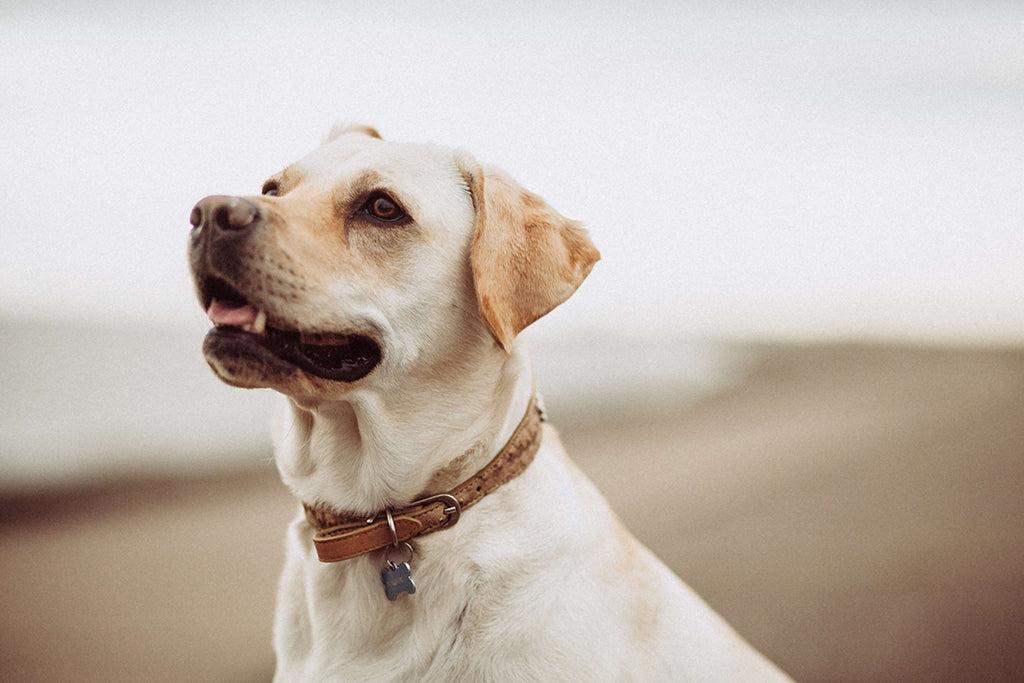In this blog, we learn all about giardia in dogs. We’ll learn what giardia in dogs is, how dogs develop giardia, what the signs and symptoms are, and whether older dogs can get giardia…
Giardia In Dogs

What Is Giardia In Dogs?
Giardia is a tiny, single-celled parasite (that isn’t a worm, bacteria, or a virus) that attacks the intestinal lining and causes very smelly, and incredibly watery diarrhea. It can also affect fish, birds, and other mammals.
Unfortunately, giardia is also possible for humans to catch which is why it’s essential you wash your hands after you clean up your dog’s (or another animal’s) poop and also if you come into contact with a dog that has diarrhea. Although possible, it is difficult to catch giardia from a dog with an infection – it’s most commonly caught by humans through drinking dirty water.
What Are The Giardia Symptoms In Dogs?
The most prominent symptom of giardia in dogs is pungent, liquid diarrhea that may also be covered in mucous or appear greasy. The diarrhea can be intermittent or continuous. Other symptoms include:
- Excessive flatulence
- Weight loss
- Loss of appetite
- Vomiting
- Blood in diarrhea
- A lackluster coat
- Inability to gain weight
- Grass eating
Unfortunately, it’s possible for a dog to spread giardia without showing any symptoms too. Many dogs are actually asymptomatic carriers.

How Do Dogs Get Giardia?
Giardia is spread by infected poop, so can be caught anywhere but it has to be ingested. If your pup eats poop, grass, or drinks water that may have been contaminated by fecal matter (like ponds, lakes, rain puddles, swamps, or the sea) they are more at risk of contracting the parasite.
Can Older Dogs Get Giardia?
Dogs of all ages can contract giardia, but it more commonly affects younger dogs, specifically puppies who have a weaker immune system.
How To Naturally Cure Giardia In A Dog
Unfortunately, no natural methods have been proven to effectively cure a case of giardia in dogs.
It’s essential you consult with your vet if you suspect your pup has giardia. Your vet will most likely request a poop sample to help them make an informed diagnosis so it’s advisable to collect one from your dog before their appointment. If it’s confirmed that your pet has giardia, they will be required to take a certain medication for 3-10 days that will kill the parasite, and it is likely they will have a follow-up examination 2-4 weeks later to make sure the giardia has passed.
Diarrhea can cause a dog to become dangerously dehydrated, particularly if it lasts more than 2 or 3 days, and even more so if you have a puppy (under 1 year of age) or a senior dog (over 7 years of age). It’s very important you get on top of the infection with your vet as soon as you’re able – a giardia infection isn’t a pleasant experience for either of you.
Untreated asymptomatic Giardia can cause severe malnutrition and drastic weight loss, so always keep up with your dog’s regular veterinary check-ups and if they do drop weight rapidly for an unexplained reason, get them and their poop assessed by your vet as soon as you can.

How Do You Prevent Giardia In Dogs?
If your dog becomes reinfected with Giardia, that’s because it’s present in their environment, so make sure you’re regularly cleaning your backyard of their and other pet/animal poop, and thoroughly clean your home.
Having a good hygiene routine at home always helps. Regularly clean your dog’s bedding, towels – and cushion covers if they’re allowed on the couch. Clean their food bowls out every day and even though it can’t directly prevent Giardia, staying on top of their flea, tick, and worm preventative treatments is helpful toward protecting their health.
In addition, if you have a curious dog who likes to eat from the garbage can or feast on their own or other animal’s poop, you should focus on training them out of it.
Giardia wreaks havoc on a dog’s digestive tract and the antibiotics used to fight it off can also reduce the number of good bacteria present in their intestine. A great way of supporting your dog’s GI tract in upping the good bacteria levels or generally to boost the health of their guts is via probiotic supplementation. Supporting their immunity by fuelling the commensal bacteria in their gut can help maintain their overall health and can help support a healthy gut environment. Always source your dog-specific probiotics from a reputable brand (like us here at PetLab Co.!) and follow the advised directions for use.
Sources
“Giardia In Dogs” PDSA, July 2019 https://www.pdsa.org.uk/pet-help-and-advice/pet-health-hub/conditions/giardia-in-dogs
Author Ward, Ernest DVM and Downing, Robin DVM DAAPM DACVSMR, CVPP and Panning, Amy DVM “Giardia In Dogs” VCA Hospitals https://vcahospitals.com/know-your-pet/giardia-in-dogs
Author Pedersen, Karen “Do Home Remedies For Giardia In Dogs Work?” Happy Natural Dog https://www.happynaturaldog.com/do-home-remedies-for-giardia-in-dogs-work/
 S
S



